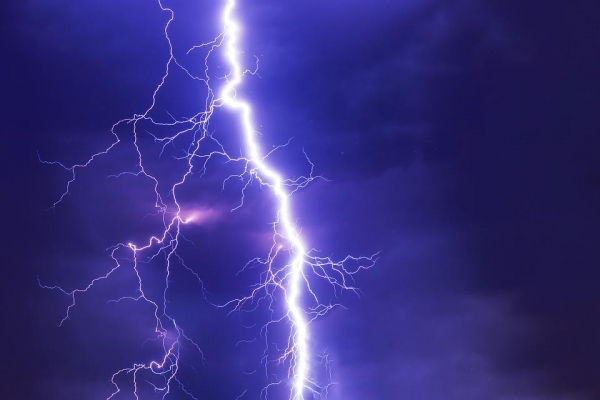A new study has found dry lightning outbreaks are the leading cause of some of the largest wildfire outbreaks in modern California history. Despite this, dry lightning has remained largely understudied across this region – until now.
Researchers from the School of the Environment at Washington State University, Vancouver, have developed the first long-term climatology of dry lightning — lightning which occurs with less than 2.5mm of rainfall — in central and northern California, published today by IOP Publishing in the journal Environmental Research: Climate.
“Wildfires are a growing threat in California as the climate continues to warm. Unlike human-caused fires that originate in a single location, lightning outbreaks can strike multiple locations and start numerous simultaneous wildfires, creating a substantial challenge for fire response,” says Dmitri Kalashnikov, a doctoral student and lead author of the paper. “This happened recently in 2020 when multiple lightning-caused fires burned nearly one million hectares across this region, and other prominent widespread lightning-caused wildfire outbreaks also occurred in 1987 and 2008.”
The team utilised daily lightning counts from the National Lightning Detection Network and precipitation observations from 1987-2020 in combination with atmospheric reanalyses to characterise the climatology of dry lightning and the associated meteorological conditions during the warm season (May-October) when wildfire risk is highest.
Read more at IOP Publishing
Photo Credit: FelixMittermeier via Pixabay


